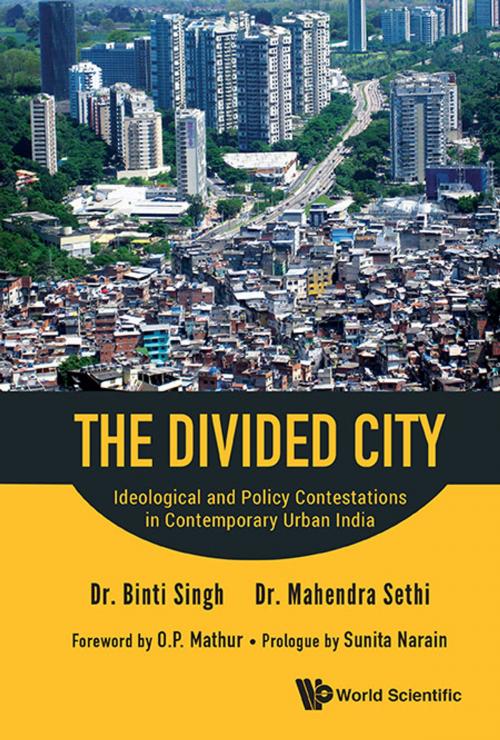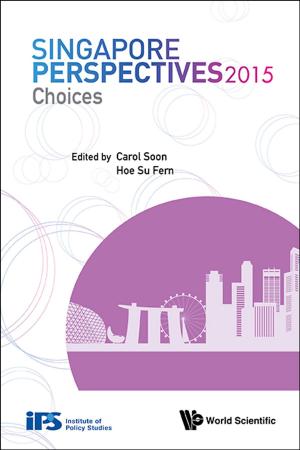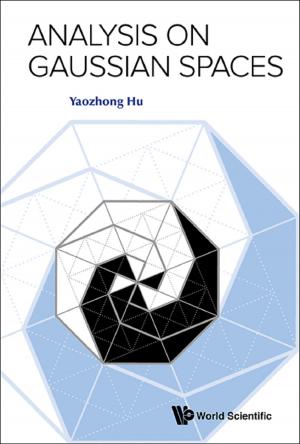The Divided City
Ideological and Policy Contestations in Contemporary Urban India
Nonfiction, Social & Cultural Studies, Political Science, Politics, City Planning & Urban Development, International, Science & Nature, Nature| Author: | Binti Singh, Mahendra Sethi | ISBN: | 9789813226999 |
| Publisher: | World Scientific Publishing Company | Publication: | June 28, 2018 |
| Imprint: | WSPC | Language: | English |
| Author: | Binti Singh, Mahendra Sethi |
| ISBN: | 9789813226999 |
| Publisher: | World Scientific Publishing Company |
| Publication: | June 28, 2018 |
| Imprint: | WSPC |
| Language: | English |
The Divided City contributes to the growing body of scholarly work on cities of the global South. Cities in developing countries, particularly emerging economies, are undergoing rapid urbanization and social transition. Empirically grounded to the contemporary urban situation in India, The Divided City is set in an opportune moment to assess how cities fare up to the challenge of inclusive urbanization. It highlights how the urban pathway of contemporary India departs from the goal of inclusion in multiple ways — access to energy, public services, architecture, land, infrastructure, commons, and cultural and civic spaces. It simultaneously interrogates both policy and theory with intermingling issues like informality, privatization, political economy and gender divide in the contemporary Indian city. The book argues for greater urban inclusion (social, economic and environmental) acknowledged in principle, in national and international urban policy frameworks.
Sample Chapter(s)
Foreword
Contents:
- Ideological and Policy Contestations in Contemporary Urban India
- Trajectory of Spatial and Social Segregation in Urban India
- Erosion of Public Space
- Equitable Access and Political Economy of Basic Urban Services
- Divided Activisms and Civic Spaces
- Urbanscapes: The Traditional–Modern Divide and Its Contemporary Implications
- Cities as Hubs of Regional and Global Climate Inequities
- Conclusion and Way Forward
Readership: Researchers and students specializing in urban sociology, urban geography, urban planning, policy and governance or those investigating the urban situation in the South Asia and anyone who is interested in deeper understanding of the contemporary city from socio-economic equity and inclusion perspective.
Key Features:
- The Divided City focuses on inequities that are mostly stark though sometimes subtle and manifest themselves spatially as well as ideationally in the form of conflicting aspirations, interests and activisms in contemporary cities in India that stand divided in multiple ways — accessibility, representation in city governance, and serviceability
The Divided City contributes to the growing body of scholarly work on cities of the global South. Cities in developing countries, particularly emerging economies, are undergoing rapid urbanization and social transition. Empirically grounded to the contemporary urban situation in India, The Divided City is set in an opportune moment to assess how cities fare up to the challenge of inclusive urbanization. It highlights how the urban pathway of contemporary India departs from the goal of inclusion in multiple ways — access to energy, public services, architecture, land, infrastructure, commons, and cultural and civic spaces. It simultaneously interrogates both policy and theory with intermingling issues like informality, privatization, political economy and gender divide in the contemporary Indian city. The book argues for greater urban inclusion (social, economic and environmental) acknowledged in principle, in national and international urban policy frameworks.
Sample Chapter(s)
Foreword
Contents:
- Ideological and Policy Contestations in Contemporary Urban India
- Trajectory of Spatial and Social Segregation in Urban India
- Erosion of Public Space
- Equitable Access and Political Economy of Basic Urban Services
- Divided Activisms and Civic Spaces
- Urbanscapes: The Traditional–Modern Divide and Its Contemporary Implications
- Cities as Hubs of Regional and Global Climate Inequities
- Conclusion and Way Forward
Readership: Researchers and students specializing in urban sociology, urban geography, urban planning, policy and governance or those investigating the urban situation in the South Asia and anyone who is interested in deeper understanding of the contemporary city from socio-economic equity and inclusion perspective.
Key Features:
- The Divided City focuses on inequities that are mostly stark though sometimes subtle and manifest themselves spatially as well as ideationally in the form of conflicting aspirations, interests and activisms in contemporary cities in India that stand divided in multiple ways — accessibility, representation in city governance, and serviceability















